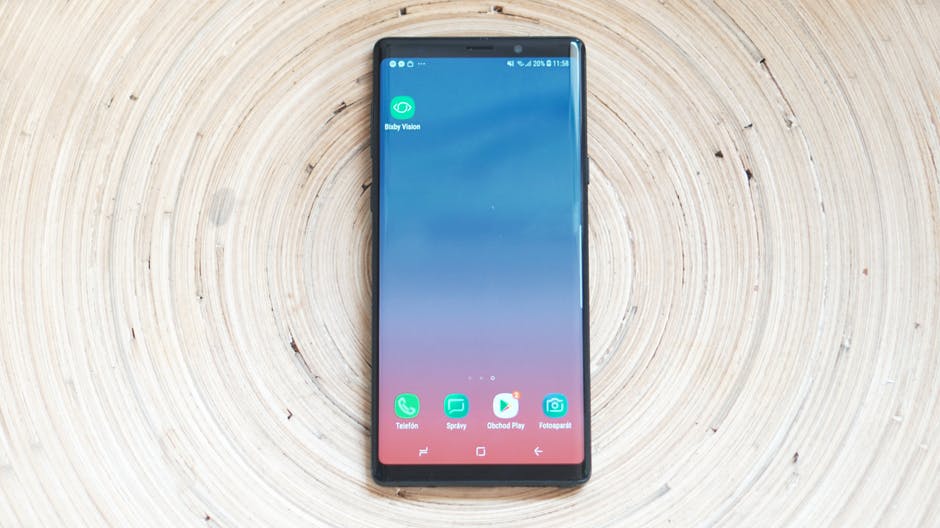WeChat looks even more like an operating system now, thanks to Samsung
Apple’s recent troubles in China have been blamed on many things, but China’s reliance on mini programs inside WeChat – and not exclusive apps only found on the iOS App Store – is one major factor. And now, WeChat could become even more powerful, thanks to a fresh tie-up with the world’s biggest smartphone brand.

Photo credit: Dávid Baránek
New Samsung handset models sold in China will give users direct access to WeChat’s in-app mini programs without having to open WeChat first. Users can swipe right on the phone’s home screen to find their five most recently used mini programs, or they can swipe left from the edge of the display to see their 10 favorite mini programs. Tapping an icon will bring up the mini program.
Since their launch in 2017, mini programs have become a key part of WeChat. These “apps within an app” are no bigger than 10 MB each, so they can be downloaded and installed almost instantly inside WeChat. And like any normal app, they can perform any number of different functions, including hailing a cab, playing games, or ordering food online.
Together, mini programs allow WeChat to combine the functions of many apps into just one. As Stratechery’s Ben Thompson wrote, WeChat pretty much becomes your smartphone: the app alone does many of the things you’d expect from an entire phone operating system.
And since WeChat is the same whether you’re on iOS or Android, it’s one reason why China is the one place where people are more likely to freely switch between iPhones and Android phones.
With the new Samsung partnership, WeChat gives users even more direct access to its ecosystem. People can now open a WeChat mini program from the phone’s home screen just like they would any other app.
While Samsung is collaborating with WeChat, other phone makers in Tencent’s home market have tried to fight its dominance.
Chinese smartphone brands Huawei, Xiaomi, Vivo, Oppo, and several more announced last year they were working together to build their own version of mini programs, known as “Quick Apps.” These lightweight apps can be accessed, for example, from the search bar on the home screen or through the phone’s voice assistant.
Quick Apps, however, have yet to catch up with the popularity of WeChat’s mini programs.
Xiaomi revealed in March that there were between 500 and 1,000 Quick Apps. The goal is to raise the number to between 10,000 and 100,000 this year. That’s a fraction of the number of WeChat mini programs, which has surpassed 2 million, according to recent estimates from mini-program development service provider Jisu App.
WeChat, though, is facing increased competition.
Alibaba’s Alipay, one of China’s two dominant mobile payment apps along with WeChat, also has its own mini programs. They include some of Alibaba’s most popular services, such as online shopping and bike-sharing. Alipay’s mini programs are expected to reach 300 million daily active users this year, according to Jisu’s report.
(Abacus is a unit of the South China Morning Post, which is owned by Alibaba.)
Visit abacusnews.com or subscribe to the newsletter via abacusnews.com/newsletter for the latest China tech news, reviews, and product launches.
Copyright (c) 2019. South China Morning Post Publishers Ltd. All rights reserved.
Recommended reads
 Cold chain turns TreeDots’ 2023 red hot
Cold chain turns TreeDots’ 2023 red hot TikTok may leave US instead of selling: report
TikTok may leave US instead of selling: report Elon Musk visits China, eyes local full self-driving tech launch
Elon Musk visits China, eyes local full self-driving tech launch Apple in talks with Baidu on AI partnership: report
Apple in talks with Baidu on AI partnership: report Xiaomi jots down 50,000 orders in 30 minutes in maiden EV’s launch
Xiaomi jots down 50,000 orders in 30 minutes in maiden EV’s launch Chips don’t lie: Did China’s latest AI just beat the US?
Chips don’t lie: Did China’s latest AI just beat the US? Apple CEO Tim Cook to visit Indonesia for potential investments
Apple CEO Tim Cook to visit Indonesia for potential investments China to regulate internet giants’ algorithms
China to regulate internet giants’ algorithms Nykaa’s financial health in 5 charts
Nykaa’s financial health in 5 charts ByteDance’s ‘AI homework helper’ now second-most popular edtech app in US
ByteDance’s ‘AI homework helper’ now second-most popular edtech app in US
Editing by Charmaine de Lazo
(And yes, we’re serious about ethics and transparency. More information here.)









